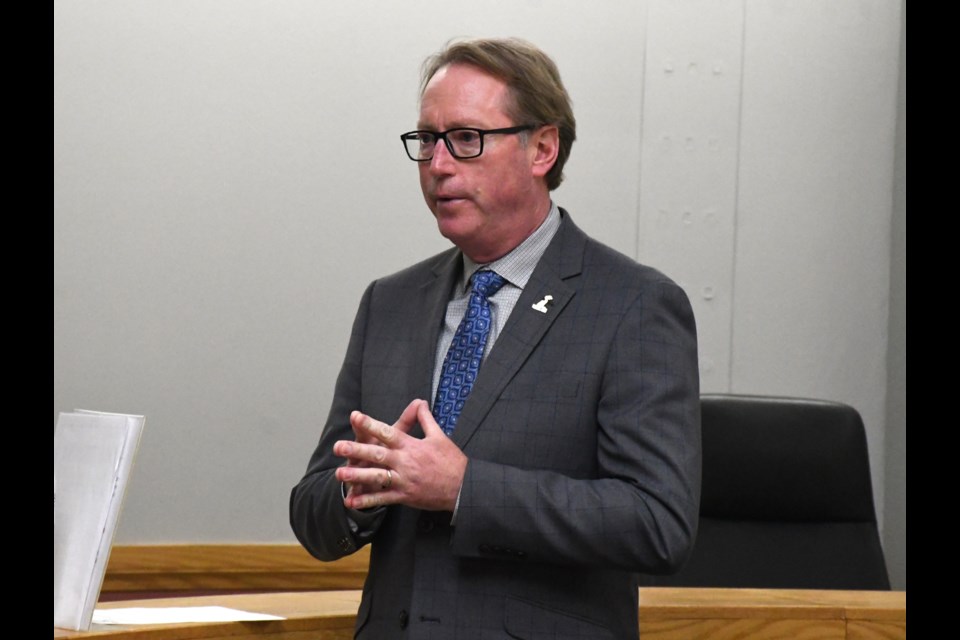MOOSE JAW — Three months of intense negotiations between the City of Moose Jaw and CUPE Local 9 have produced a new collective agreement that gives employees a raise of roughly eight per cent.
Members of both bargaining committees met on March 31 to officially sign the new agreement, which commenced retroactively on Jan. 1, 2023, and ends on Dec. 31, 2026. The old agreement expired on Dec. 31, 2022, leaving the union without an agreement for more than two years.
CUPE workers will receive two per cent more as of Jan. 1, 2023, three per cent more as of Jan. 1, 2024, 1.5 per cent more as of Jan. 1, 2025, and one per cent more as of July 1, 2025.
Other highlights include enhanced employee benefits, the implementation of a new joint job evaluation framework and a new pay structure, effective Jan. 1, 2026.
“I’m very proud of today. The City of Moose Jaw is fortunate to have come to this agreement with CUPE Local 9 … ,” said Mayor James Murdock. “I just want everyone to work together.”
The mayor thanked the union’s bargaining members for their patience, while he was pleased that the new city council made it a priority to address this outstanding issue, based on input from the human resources department.
Negotiations became serious in late 2024 and concluded on Feb. 20 with a tentative agreement.
“We’re trying to promote unity with the entire city. And I think this was very important to do because it was two years,” said Murdock, noting he sees CUPE members daily and is friends with some.
Murdock added that this was a new experience for him since he’d never been involved in contract negotiations before, but appreciated the regular flow of information from the HR department.
“This was a whirlwind of a bargaining (session) … because I came into it right at the end,” said Justine Deets, who became union president in December.
This process was “a very new experience” for her, considering she was previously a shop steward before she stepped forward as president. There has been plenty of learning during this time, but she thought the overall experience was good.
Both sides pushed hard to finalize an agreement and worked well in making that happen, with the new contract containing some important improvements, she continued. She thought that both sides walked away “pretty happy,” while members were also pleased with the 7.5-per-cent increase in wages.
Past practice has been for the two sides to wait until the contract expires before they begin negotiations, but union bylaws state that negotiations can commence nine months before the agreement concludes, the union president pointed out.
Two things the union will do before this agreement ends are prepare its bargaining committee and send surveys to members for input, and with this done, begin talks with the city either before or just after the agreement expires.
The benefits package and wages were “a big kicker” during the talks, which is probably why negotiations took so long, Deets said. With the joint job evaluation framework, the two sides re-evaluated positions, which led to many members receiving an increase in wages.
“So I think it was a nice, fair and equitable way of doing it,” she added.




